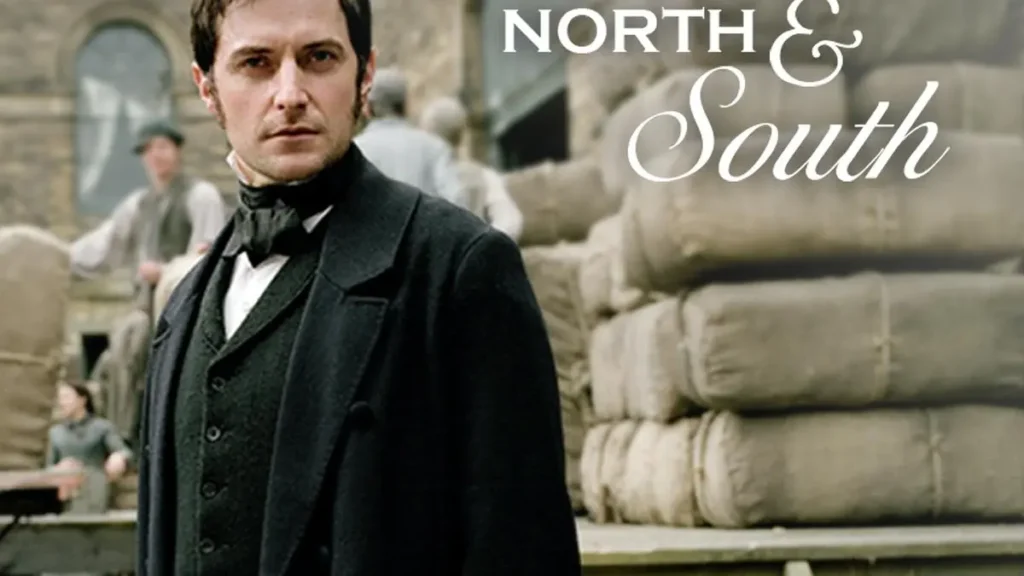
Richard Armitage as Mr Thornton in the BBC adaptation of North and South.
| Photo Credit: By special arrangement
Dear Reader,
I am sick of the vapid sameness generated by the Ghibli filter. Do we all look happy, rounded, wide-eyed, and silly? Are our surroundings always wrapped in a golden glow, is the sky always blue, and do we always blush and smile? Although I admire the films of the legendary Miyazaki, after encountering Ghiblified images whenever I open social media, I am going to stay away from the films for a while.
By this time, so much has been said about the use of AI for writing, editing, drawing, animation and so on, that I have nothing new to add to the debate. Speaking for myself, I can only say that I am all for eccentricity in art, and since ChatGPT can probably be everything but eccentric, I choose to ignore it.
Having said that, I must add that the extensive use of AI in the coming days is probably an inevitability. And the backlash it is facing now is as inevitable. Remember the Luddites, who, in their panic over mechanisation brought about by the Industrial Revolution in England in the 19th century, went about smashing machinery? There was a conflagration of protests, but the world moved on, taking along the new machinery with it in its forward march, and absorbing some of the displaced workers in the factories that came up. Those who could not match step with the world, fell off the highway and were forgotten. In the same way, those among us (including me) who cannot take to the changes brought about by AI in the coming days, will probably lose their jobs and drop off the radar. The process is sad, cruel, unjust, but this is how the world moves.
Realist artists have shown the working of this fact in their fiction. The English novelist Thomas Hardy’s Wessex novels are set in the age of the Industrial Revolution, and he shows how it decimates the traditional way of life based on agriculture. But he also points out that the older way of life was far from perfect—it was sad, cruel and unjust in its own way.
If we take his tragic heroine Tess to be the symbol of the individual caught in and destroyed by the crucible of social change, and her father to be the representative of the olden, feudal ways, then we must acknowledge that the father is anything but likeable. It is his lack of responsibility towards his family, coupled with the idle tendency to wallow in nostalgia, that pushes Tess towards ruination by forcing her to seek employment with the nouveau-riche d’Urbervilles.
Ultimately, of course, the onus of being thoughtful towards others instead of blindly seeking self-interest rests with the individual, not with technology, which is obviously beyond the pale of morality. This is the lesson of Elizabeth Gaskell’s North and South, set in the smoke-filled industrial north of England in the 19th century. The middle-class heroine, Margaret Hale, teaches the rich mill-owner, John Thornton, how to manage the dirt-poor, rebellious workers with consideration and empathy, rather than with the high-handedness and callousness typical of his class. The resolution might be utopic, even problematically bourgeois, but no better working solution to the root problem of the capitalist system has been found till date. The BBC adaptation of North and South is an all-time favourite of mine, not least because it stars Richard Armitage of the deep voice and dark looks as Mr Thornton.
The latest issue of Frontline has a review of the graphic adaptation of C.S. Chellappa’s Vaadivaasal: The Arena by Perumal Murugan and Appupen. Reading the review, I went back to the graphics in the book and was stunned by the kinetic energy contained in the still images. AI can surely produce something similar, but the prompts must still come from the human artist, needless to say. And since the quality of the work, even when done with the help of AI, ultimately depends on the artist, one can figure out the direction in which the whole art versus tech debate is heading. Do check out the excellent review by Bharath Murthy, who is a comics artist himself, here.
This issue of Frontline has a rich crop of good reviews. Mridula Vijayarangakumar’s review of Nobel-winner Han Kang’s latest novel, We Do Not Part, is as moving and deeply felt as the novel (I have it from trusted sources that Vijayarangakumar is a Han Kang bhakt). Aditya Sondhi’s honest and stylish review of Srikar Raghavan’s Rama Bhima Soma made me appreciate my adoptive State, Karnataka, with renewed gusto. Don’t miss the reviews!
I leave you here to return to my daily work chores. But grey clouds are gathering atop the bright red African tulips, and the light is getting buttery—one more reason to love Bengaluru/ Karnataka/ the world.
See you again soon,
Anusua Mukherjee
Deputy Editor, Frontline
Source:https://frontline.thehindu.com/newsletter/reading-with-frontline/ghibli-filter-ai-art-debate-hardy-gaskell-vaadivaasal-review/article69439177.ece

